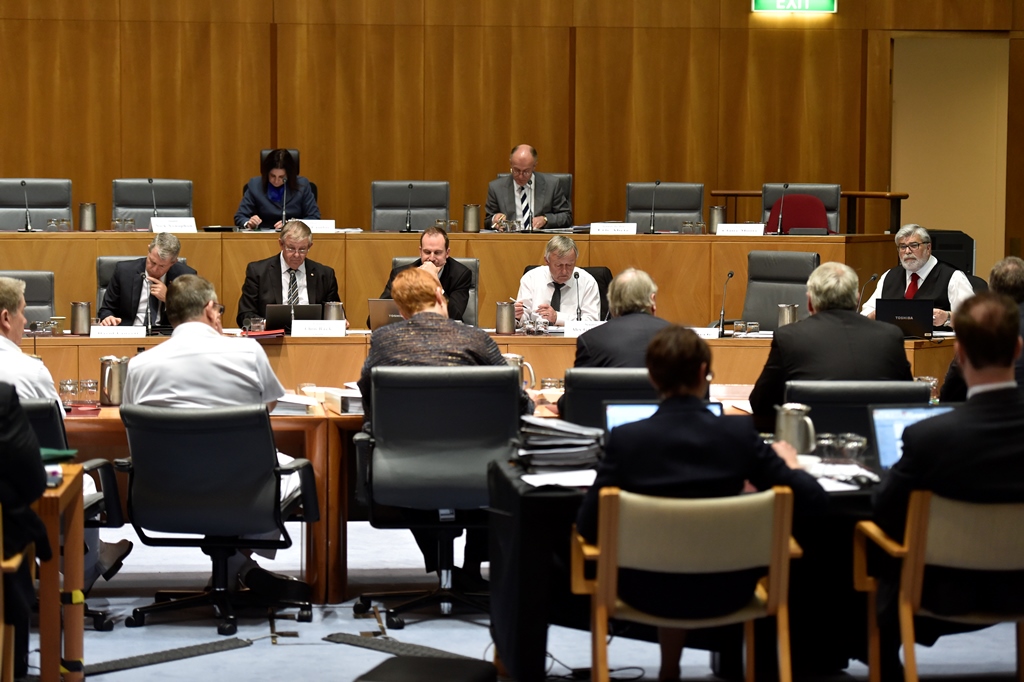Senate estimates
Several times a year senators investigate how the government is spending taxpayers' money in meetings called Senate estimates. This fact sheet examines the purpose, function and timing of Senate estimates.
What will I learn?
- The Senate closely examines how the Australian Government collects and spends taxpayers’ money in Senate estimates hearings.
- Senate estimates play an important role in keeping the government accountable.
What are Senate estimates?
Senate estimates in action

DPS Auspic
Description
Members of parliament sitting at desks in rows opposite each other in a committee room at Australian Parliament House. There are folders of paper and laptops in front of them. One member of parliament is speaking to the group and the others are listening.
Copyright information
Permission should be sought from DPS AUSPIC for third-party or commercial uses of this image. To contact DPS AUSPIC email: auspic@aph.gov.au or phone: 02 6277 3342.
Senate estimates are meetings where senators scrutinise – closely examine – how the government is spending taxpayers' money. The meetings, also called hearings, are named 'estimates' because senators examine how much money the government estimates it will collect and how it plans to spend it. In estimates, senators can question ministers and government department officials about the work of the government.
Purpose
The government is responsible for collecting and spending public money, but it cannot spend this money without the approval of Parliament. Senate estimates are an important way of making the government accountable for its actions. They also help senators to make informed decisions about government spending.
Under detailed questioning from senators, ministers and department officials may reveal details about government decisions and spending that may not have been made public before. Estimates hearings may lead to improvements in the way government departments are run.
Process
In May, the government introduces the Budget to Parliament. The Budget explains how the government plans to spend money in each of its portfolios – areas of responsibility. Estimates hearings are held after the Budget is introduced in the House of Representatives.
The hearings are run by the 8 standing – permanent – committees of the Senate. Each committee is made up of 6 senators – 3 from the government, 2 from the opposition and 1 minor party or independent senator. However, any senator can ask questions during the hearings.
Senators read and research the Budget to prepare for estimates hearings. They are usually held when the Senate is not meeting so that all senators can take part. Ministers who are senators and top-level officials from government departments must attend to answer questions. Ministers from the House of Representative are not required to attend estimates and are represented by ministers from the Senate.
Estimates hearings last for up to 2 weeks. Government departments can be questioned for several days. Hearings often begin at 9am and can continue until 11pm. Extra estimates hearings are held in October and February to allow senators to ask more questions.
After each estimates hearing is completed, the committee presents a report that highlights any issues of concern and makes recommendations to the Senate.
All estimates hearings are open to the media and the public and can also be viewed online. As these hearings are a formal meeting of Parliament, Hansard publishes a record of everything that is said. Committee reports are also available online.